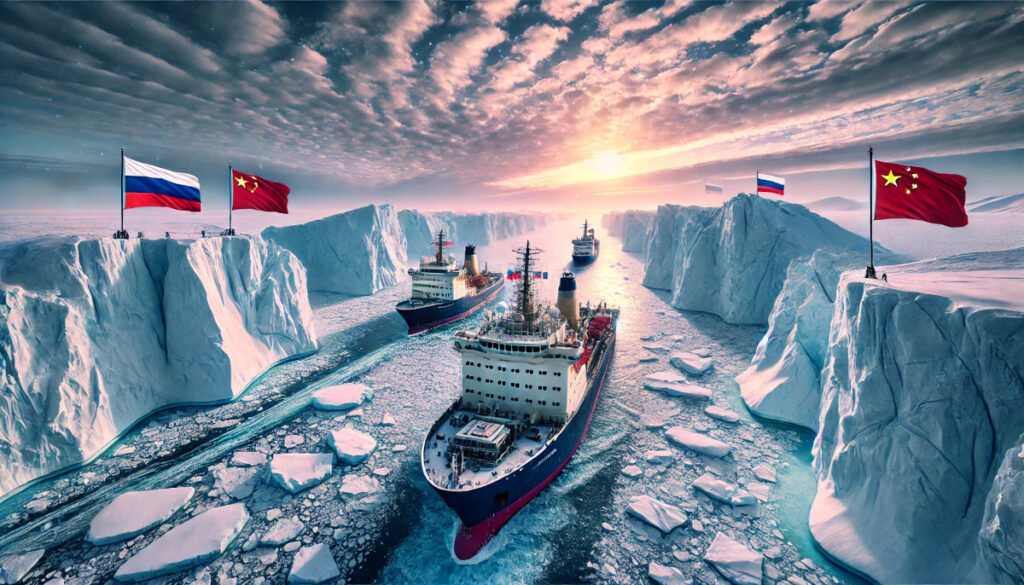
Chinese icebreakers navigating the Arctic – DALL-E
China’s Arctic ambitions have become increasingly evident with the recent deployment of three icebreakers, marking a notable expansion of its presence in the polar region. This move signals China’s determination to assert itself as a “polar great power,” which aligns with its broader geopolitical goals and deepening partnership with Russia.
The collaboration between China and Russia in the Arctic has intensified, particularly around the development of the Northern Sea Route (NSR). This sea route, which passes through Russia’s Arctic waters, has gained strategic importance as melting ice increases accessibility. The NSR offers a faster alternative to traditional routes like the Suez Canal, with the potential to significantly reduce travel time for shipping between Europe and Asia. This has been a focus of joint efforts, as both China and Russia recognize the economic and strategic benefits of the region. Notably, Russian President Vladimir Putin invited other countries, including China, to invest in the development of Arctic shipping infrastructure at the recent Belt and Road Forum, envisioning year-round navigation for ice-class vessels by next year.
Beyond shipping, China is also collaborating with Russia on technological and scientific research in the Arctic. The construction of deep-sea research facilities, fiber-optic cables, and dual-use projects have drawn attention to China’s long-term plans to secure resources and establish a strong foothold in the region. China has been increasingly involved in scientific research, using this as a means to bolster its influence and strategic presence in the Arctic. However, these activities have also raised concerns about the dual-use nature of some projects, which could have military implications. China’s Arctic ambitions extend beyond economic interests, with military analysts viewing the region as a future zone of great power competition.
Both countries see the Arctic as a strategic frontier, with China pushing forward its “Polar Silk Road” initiative—a part of its larger Belt and Road strategy. While China presents this project as a peaceful development effort, its deeper involvement in Arctic governance and infrastructure development hints at broader aspirations to challenge existing power dynamics in the region.
The growing China-Russia alliance in the Arctic reflects their shared desire to counter Western influence in this critical region. The two nations have worked closely on various fronts, including icebreaker technology and Arctic governance frameworks, as they aim to secure their dominance in the region’s future economic and geopolitical landscape.
China’s Arctic ambitions are multifaceted, involving economic, scientific, and strategic elements, all of which are tied to its collaboration with Russia. As both nations continue to forge deeper ties in the Arctic, the region is becoming an increasingly important arena for global power struggles, with significant implications for international shipping, resource extraction, and military competition.








